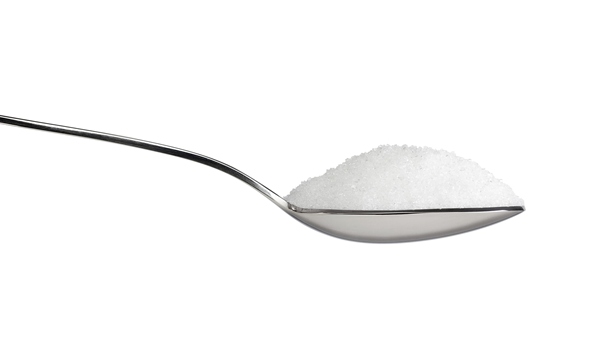
I think most people understand that consuming too much sugar is a bad thing. We know it can lead to serious tooth decay and contribute to weight gain, blood sugar irregularities, and insulin spikes. But now the big question is “is sugar toxic?”
According to Dr. Robert Lustig, an expert on childhood obesity at the University of California in San Francisco, “sugar is toxic beyond its calories.”
If you consider just how much sugar we consume, you might actually be surprised and react just like Dr. Lustig. For example, the average Canadian eats 26 teaspoons of sugar daily, which is 20 bags per year! And the average American consumes about 80 pounds of sugar a year!
Considering that the American Heart Association recommends that males consume no more than nine teaspoons of sugar per day and females consume no more than six, the average North American consumes much more than the recommended limit—and that’s what concerns health experts like Dr. Lustig.
“I use those words and I mean them. This is not hyperbole. This is the real deal,” he said. “Everyone thinks that the bad effects of sugar are because sugar has empty calories. What I’m saying is no, there are a lot of things that do have empty calories that are not necessarily poisonous.”
Sugar, or sucrose, is a disaccharide molecule composed of one molecule of glucose and one molecule of fructose. The problem is what happens when this “innocent” compound is metabolized by your body.
“When you metabolize fructose in excess, your liver has no choice but to turn that energy into liver fat and that liver fat causes all of the downstream metabolic diseases,” said Dr. Lustig.
The data certainly supports this idea that excess fructose intake can increase triglyceride production in the liver and encourage the storage of fatty acids within it.
When the amount of stored fat in your liver increases, the cells can become insulin resistant, which is a precursor to metabolic syndrome and high levels of systemic inflammation. Other diseases, like obesity, may be directly caused by the toxic amount of sugar we’re consuming, according to Dr. Lustig.
What’s more concerning is that currently, there remains no recommendation regarding the safe limits of daily sugar consumption. Despite this fact, the food industry lobby contends that there is no need for recommended daily limits regarding sugar consumption.
“I think it’s important that we step back and look for ways to educate and help consumers fit sugar into a healthy dietary pattern,” said Phyllis Tanaka, vice president of scientific and regulatory affairs for Food and Consumer Products of Canada.
Well, how can we do this when there are no recommendations about safe limits of sugar consumption and when labeling is often misleading?
Also, Ms. Tanaka is a spokesperson for a very large and influential food lobby group, so we need to be careful regarding her own credibility and bias (she also said that, at this time, there’s no direct link between sugar consumption and disease).
The science is quite clear regarding the overconsumption of simple sugars and their collective effects upon blood sugar, insulin secretion, body fat accumulation, triglyceride production, and blood pressure.
In my opinion, there is no doubt that sugar causes weight gain and metabolic disturbances in our children and young adults. But is sugar toxic? I would be hesitant to admit that sugar should be considered a poison.
However, the effects of the overconsumption of sugar during extended periods of time are potentially disastrous and certainly addictive. In my opinion, efforts to reduce sugar consumption should be aggressive and forthcoming.
Source:
“How ’toxic’ is sugar?” CBC News web site; http://www.cbc.ca/news/health/how-toxic-is-sugar-1.1894262, last accessed, October 21, 2013.













